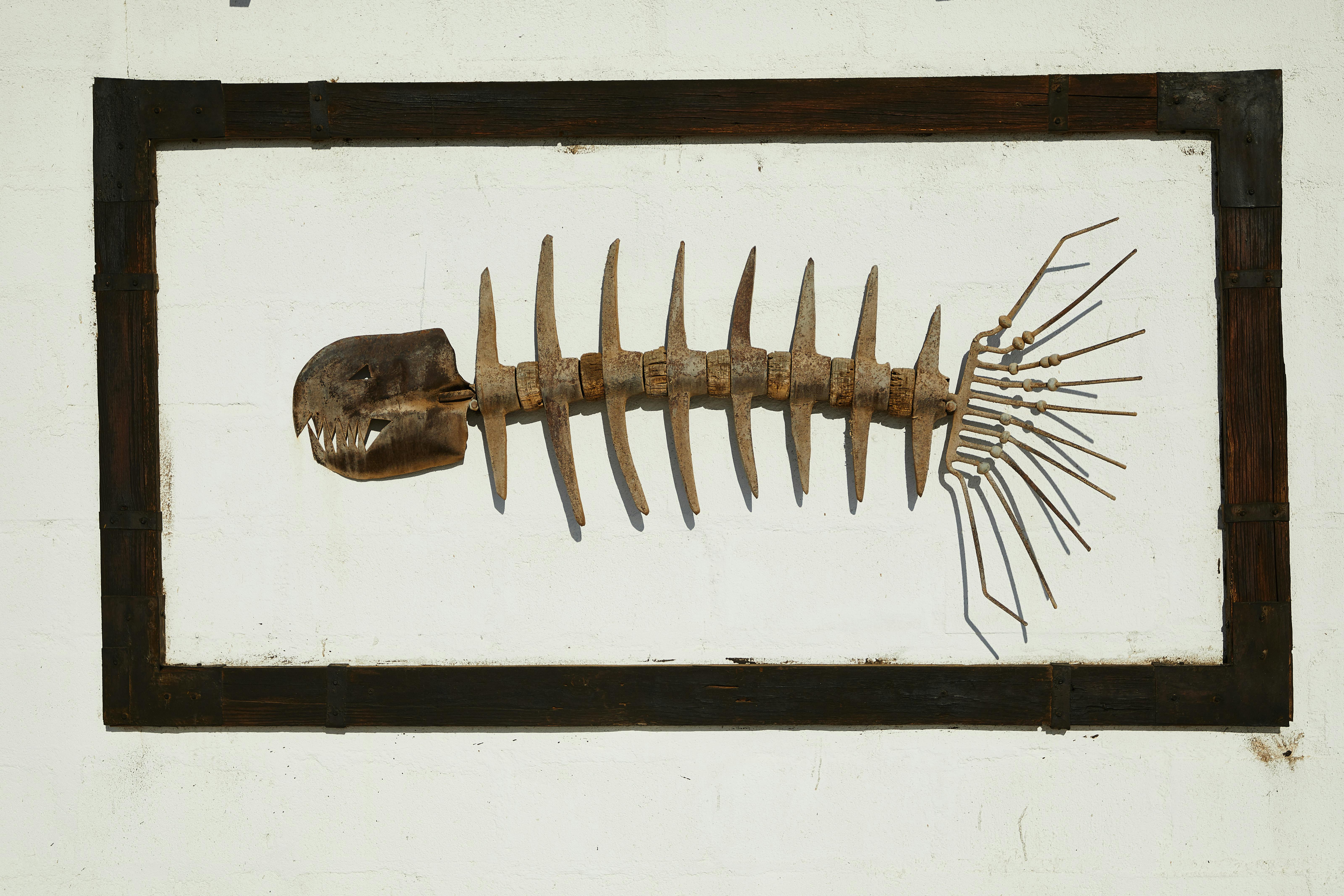Wisdom teeth, or third molars, are the last teeth to emerge in the mouth. In most cases, they appear between the ages of 17 and 25. While wisdom teeth can be beneficial in some cases, they can also cause problems such as jaw lock. Jaw lock occurs when a wisdom tooth is impacted or misaligned and causes the lower jaw to become stuck in an open or closed position. In this article, we’ll discuss what causes jaw lock and how it can be treated.Jaw Lock is a term used to describe a condition in which the lower and upper jaws become stuck together, making it difficult or impossible to open the mouth. This condition can be caused by a variety of factors, including trauma, misalignment of the jaw joint, infection, or inflammation. Treatment for Jaw Lock typically involves some form of physical therapy for the jaw muscles and jaw joint. In more serious cases, surgery may be necessary to restore normal movement and function.
What Causes Jaw Lock?
Jaw lock, also known as temporomandibular joint dysfunction (TMJD), is a condition that affects the jaw and surrounding muscles. It is characterized by pain and a restricted range of motion when opening and closing the mouth. Jaw lock can be caused by various factors, including trauma, misalignment of the jaw, arthritis, poor posture, stress or tension in the muscles of the head and neck, and teeth grinding.
Trauma to the jaw joint can cause inflammation in the area, leading to jaw lock. This could include an injury sustained during contact sports or a blow to the face. Misalignment of the jaw can also lead to TMJD as it causes increased strain on the joints and muscles of the face.
Arthritis is another common cause of jaw lock as it affects how well joints move and function. Poor posture can cause tension in the head and neck muscles, which can then lead to TMJD as this tension can restrict movement in the jaw joint. Stress and anxiety have also been linked with jaw lock due to their ability to increase tension in certain areas of the body such as around joints. Teeth grinding (bruxism) is also associated with TMJD as it puts a lot of strain on the jaw joint.
If you are experiencing symptoms associated with TMJD, such as pain or difficulty moving your jaw, it is recommended that you see your doctor for further evaluation. Your doctor may recommend lifestyle changes such as relaxation techniques or physical therapy exercises to help reduce symptoms associated with TMJD.
Diagnosing Jaw Lock
Jaw lock, also known as temporomandibular joint (TMJ) disorder, is a condition that causes pain and discomfort in the jaw. It can be caused by a wide variety of factors, including dental work, injury to the jaw, or even stress. Diagnosing jaw lock can be difficult because there are many potential causes and symptoms. It is important to consult with a doctor or dentist to properly diagnose the condition and determine an appropriate course of treatment.
The first step in diagnosing jaw lock is to take a medical history. This includes questions about any recent dental work or injuries that could have caused the condition. It is also important to discuss any medications that may be contributing to the problem. Additionally, it is important to identify any areas of tension or stress in patients’ lives that could be causing them discomfort.
Once the medical history has been taken, a physical examination will be conducted. This includes examining the jaw joint for any signs of inflammation or swelling. The doctor may also check for tenderness when pressure is applied to certain areas on the face and neck. Additionally, they may ask patients to move their jaw in different directions while they observe for any signs of pain or limited movement.
If further testing is needed, imaging tests such as X-rays may be ordered by your doctor or dentist so they can get a better look at the structures of your jaw joint. In some cases, blood tests may also be necessary if they suspect an underlying infection might be causing your pain and discomfort.
The diagnosis and treatment of jaw lock will vary depending on the cause of your symptoms and how severe they are. Treatments can range from simple lifestyle changes such as avoiding hard foods and limiting jaw movement to more complex interventions such as physical therapy or surgery. Your doctor will help you come up with an individualized plan that best fits your needs so you can get relief from your symptoms quickly and safely.

Treating Jaw Lock
Jaw lock, also known as temporomandibular joint (TMJ) disorder, is a common condition that can cause pain and stiffness in the jaw muscles and joints. It can occur due to injury, stress, or misalignment of the teeth. Treatment of jaw lock depends on the cause of the condition. In most cases, treatment includes lifestyle changes, physical therapy, medications, and in some cases, surgery.
Lifestyle changes such as avoiding hard or chewy foods and limiting jaw movement can help reduce symptoms of jaw lock. Physical therapy may be recommended to strengthen jaw muscles and improve range of motion. Medications such as muscle relaxants or anti-inflammatories may be prescribed to reduce pain and inflammation. In some cases, splints or mouth guards may be used to keep the jaw in a comfortable position.
If non-surgical treatments do not provide adequate relief for the symptoms of jaw lock, surgery may be an option. The type of surgery depends on the cause of the condition and may include arthroscopy (a procedure that uses small instruments inserted through tiny incisions) or open joint surgery (a procedure that involves making a larger incision).
In addition to medical treatments for jaw lock, complementary therapies such as massage therapy or acupuncture may help reduce pain and improve range of motion. Psychological therapies such as cognitive behavioral therapy (CBT) can also help manage stress-related jaw lock symptoms by teaching relaxation techniques such as deep breathing exercises or progressive muscle relaxation.
It is important to consult with a healthcare provider for an accurate diagnosis and appropriate treatment options for jaw lock. With proper treatment and lifestyle modifications, it is possible to manage symptoms and prevent further complications from occurring.
Jaw Lock Surgery
Jaw lock, also known as trismus, is a condition in which the jaw muscles become so tight that the jaw cannot open or close. In severe cases, the jaw muscles can become so tight that the person is unable to open their mouth at all. Jaw lock surgery is a procedure that helps to relax the jaw muscles and allows a person to open and close their mouth normally. During this surgery, the surgeon makes an incision in the affected muscle and releases some of the tension in order to improve range of motion. The procedure can be done under local or general anesthesia depending on the severity of the condition.
The recovery period after jaw lock surgery typically lasts about two weeks. During this time, it is important to rest and avoid strenuous activities that could strain the jaw muscles. Pain medications can be used to help manage any discomfort during this time as well. After two weeks, physical therapy may be recommended in order to help strengthen and stretch the jaw muscles in order to prevent any further locking episodes from occurring.
Overall, jaw lock surgery is an effective way of treating trismus and restoring normal range of motion in people who suffer from it. While there may be some risks associated with any type of surgical procedure, most patients experience positive results with minimal complications after undergoing this procedure. If you are experiencing difficulty opening or closing your mouth due to trismus, it is important to speak with your doctor about whether jaw lock surgery might be an appropriate treatment option for you.
Preventing Jaw Lock
Jaw lock is a painful and uncomfortable condition that can be caused by a variety of factors, including dental problems, arthritis, and trauma. To prevent jaw lock, it is important to understand the causes and take proactive steps to reduce your risk. Here are some tips for preventing jaw lock:
•Practice good oral hygiene – Regular brushing and flossing can help keep your teeth healthy and reduce your risk of developing jaw lock. Additionally, it is important to see a dentist regularly for routine check-ups.
•Avoid grinding or clenching your teeth – Teeth grinding or clenching can put undue stress on the joints in your jaw, which can lead to jaw lock. If you notice that you are grinding or clenching your teeth while sleeping, talk to your doctor about getting fitted for a mouthguard.
•Eat soft foods – Eating soft foods is important for people with arthritis in the jaw or those who have had trauma to the jaw area. Hard or crunchy foods can cause further damage to the joint and increase the risk of developing jaw lock.
•Exercise your jaw – Exercising the muscles in the jaw can help strengthen them and reduce tension in the joints that could lead to jaw lock. Some simple exercises include opening and closing your mouth wide, side-to-side movements, and pressing down on your chin with one hand while pushing up with the other.
•Avoid direct trauma – Trauma such as being hit in the face or head or having an accident involving facial injuries can increase your risk of developing jaw lock. Wearing protective gear when playing sports can help reduce this risk.
By following these tips, you can help reduce your risk of developing painful and uncomfortable jaw lock. Be sure to talk to a doctor if you are experiencing any possible symptoms associated with this condition so they can provide appropriate treatment options.

Conclusion
It is important to note that wisdom teeth can cause jaw lock in some cases. This is because the wisdom teeth can grow in an abnormal position, which can cause them to press against other teeth or bone in the mouth. If this happens, it can restrict the movement of the jaw and lead to pain and discomfort. It is important to get medical advice if you are experiencing jaw lock, as it may be a sign of something more serious such as TMJ disorder or infection. Taking regular breaks from physical activities and avoiding chewing hard foods can also help reduce the risk of developing jaw lock due to wisdom teeth.
Overall, it is essential to be aware of the potential risks associated with wisdom teeth and take necessary steps to prevent any issues arising. If you experience any symptoms of jaw lock, it is important that you seek medical advice promptly for appropriate treatment and management.
